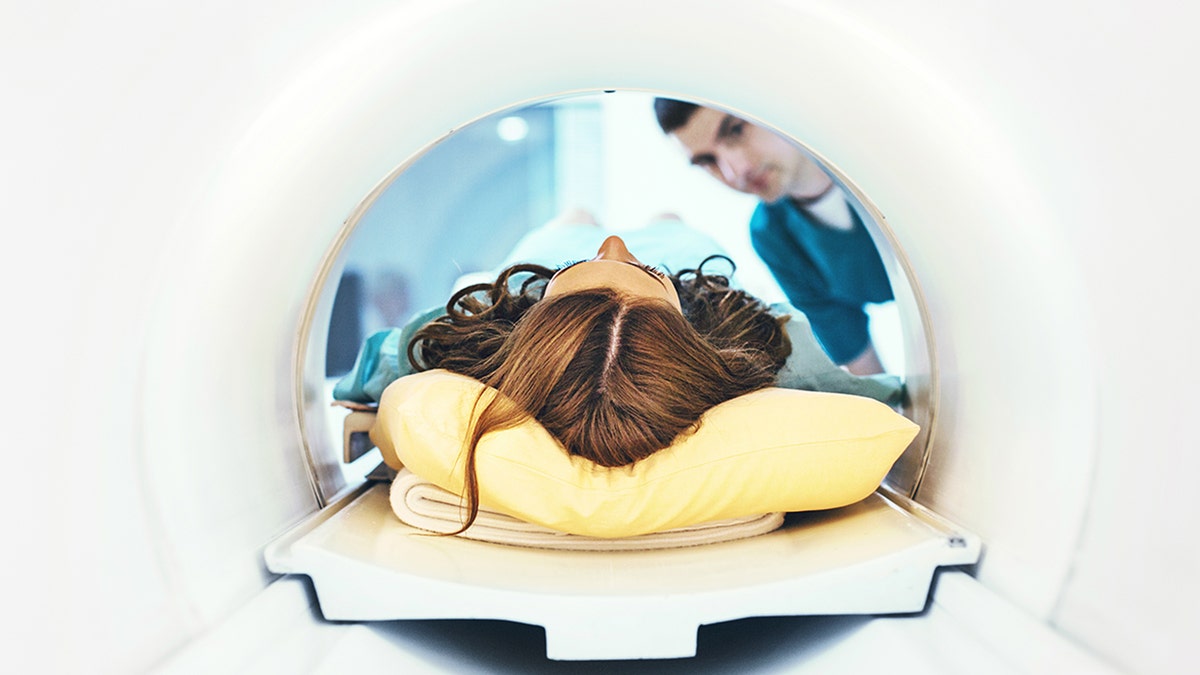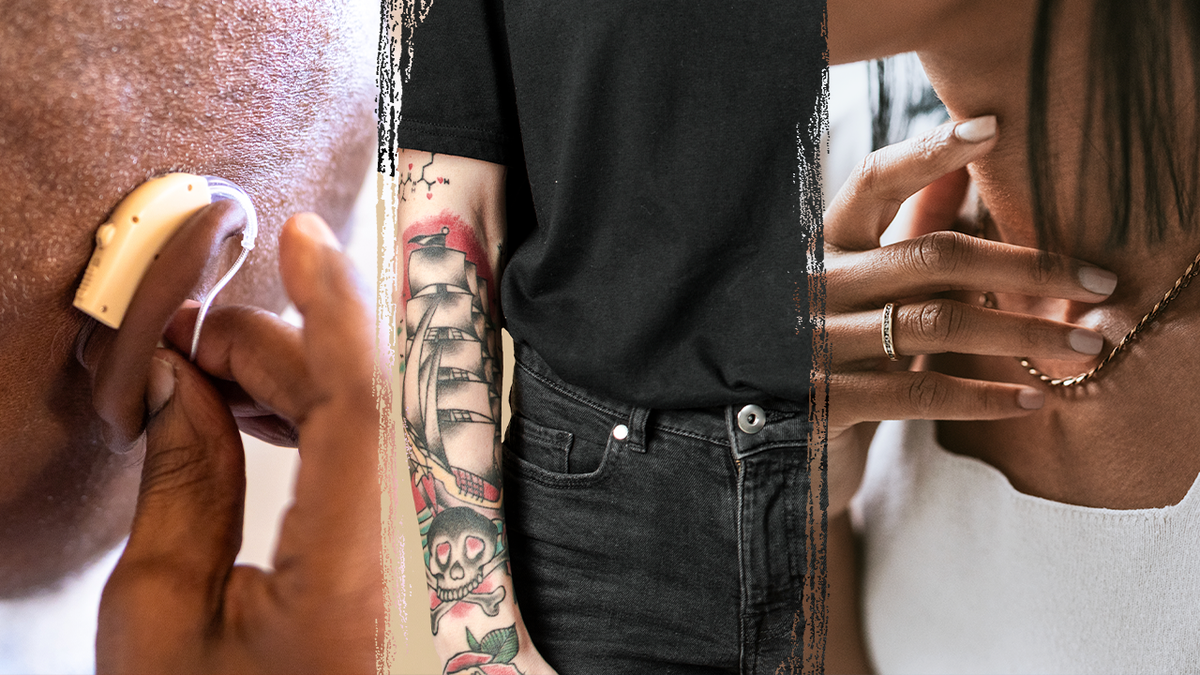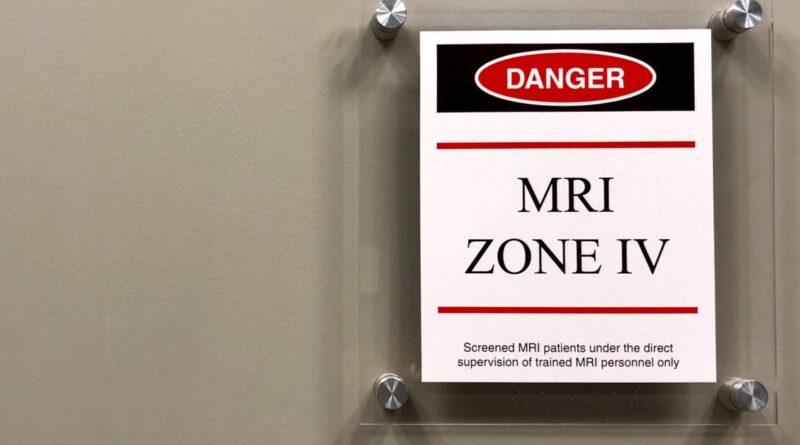MRI safety: These magnetic items can pose fatal risks to patients
NEWYou can now listen to Fox News articles!
Preparing for a successful MRI screening involves more than just lying still.
Certain materials can interact with the strong magnetic field of an MRI (magnetic resonance imaging) machine, so what you wear — or don’t wear — is essential.
A recent fatal incident in Westbury, New York, at Nassau Open MRI, involved a man being sucked into an MRI machine due to a heavy metal chain he wore around his neck.
MAN DIES AFTER BEING PULLED INTO MRI MACHINE BY METAL NECKLACE HE WAS WEARING
The man, 61, entered the room during his wife’s scan. He was drawn into the machine by his necklace, which “resulted in a medical episode,” according to a press release from the Nassau County Police Department.
The man was transported to a local hospital on July 16 and died the next day due to his injuries, the release stated.

A recent fatal incident in Westbury, New York, at Nassau Open MRI, involved a man being sucked into an MRI machine due to a heavy metal chain he wore around his neck. (iStock)
Nassau Open MRI states on its website that anything metallic should be removed prior to entering the machine, including hearing aids, partial plates, dentures, jewelry and hair pins.
Multiple practices and agencies, including the U.S. Food and Drug Administration (FDA), warn that the “strong, static magnetic field” of an MRI machine will attract magnetic objects.
TOXIC HEAVY METALS DETECTED IN POPULAR RICE BRANDS ACROSS AMERICA, STUDY SHOWS
Small items like keys and cellphones — as well as large, heavy items like oxygen tanks and floor buffers — may “cause damage to the scanner” or injure the patient or medical professionals if those objects “become projectiles,” the FDA cautioned.

Multiple practices and agencies, including the U.S. Food and Drug Administration (FDA), warn that the “strong, static magnetic field” of an MRI machine will attract magnetic objects. (iStock)
Iowa Carver College of Medicine’s Magnetic Resonance Research Facility published MRI safety guidelines, noting that the magnet is always on, and only cleared patients and professionals are permitted to enter.
What not to bring into an MRI
The following list of items should not be brought into an MRI screening, according to multiple experts and medical facilities.
Wearables
- Clothing with metallic threads or fibers
- Zippers, buttons, snaps or other metal fasteners
- Jewelry
- Piercings
- Watches
- Hair pins and clips
- Tattoos with metal-based ink

Items that contain metal like jewelry, medical devices like hearing aids, buttons and zippers on clothing, and even metal-based ink tattoos should be avoided if getting an MRI. (iStock)
Medical devices
- Hearing aids
- Partial plates
- Dentures
- Oxygen tanks
ARE FULL-BODY SCANS WORTH THE MONEY? DOCTORS SHARE WHAT YOU SHOULD KNOW
Implanted devices
- Pacemakers
- Aneurysm clips
- Cochlear implants
- Neurostimulators
- Metal coils and stents

Implanted medical devices such as pacemakers, ports, pumps, stents, metal pins, screws and even shrapnel can interfere with an MRI. (iStock)
Personal items
- Keys
- Cellphones
- Coins
- Makeup with metallic particles
- Fingernail clippers
- Pocket knives
- Pens
- Paperclips
- Scissors
- Credit and debit cards
What to wear for an MRI
Florida-based Precision MRI Group warned on its website that patients should avoid clothing and wearables that include metal, as this interaction can cause “burns, malfunctions in the machine or compromised image quality.”
Loose-fitting cotton or linen clothing, pajamas and nightgowns are all permissible attire for an MRI, according to the above source.
CLICK HERE TO GET THE FOX NEWS APP
Items like compression wear, tight-fitting spandex and clothing with metal embellishments should be avoided.
“Some modern clothing brands incorporate metal fibers in their fabrics for anti-odor or antibacterial purposes,” the group wrote. “While these innovations are helpful in daily life, they are dangerous in an MRI setting.”

Small metal items that can fit in pockets can turn into dangerous projectiles in an MRI room. (iStock)
MRIs with medical devices
ARA Diagnostic Imaging, a radiology practice with multiple locations in Texas, noted on its website that any implants or devices should be discussed with a doctor prior to an MRI.
These include the medical devices and implants mentioned above, as well as others like artificial heart valves, ports, pumps, artificial limbs, metallic joint prostheses, metal pins, screws, plates, surgical staples, some IUDs and even shrapnel anywhere in the body.
“Metallic objects in the body can have dangerous effects when placed in a magnetic field.”
Kenneth J. Perry, M.D., an emergency medicine attending physician in Charleston, South Carolina, reiterated in an interview with Fox News Digital the strength of MRI magnets, noting how hospital gowns, monitoring devices and even stretchers are free of metal around MRI machines.
CLICK HERE TO SIGN UP FOR OUR HEALTH NEWSLETTER
“People should remember to mention any implantable device to the MRI tech,” he said. “Patients who have pacemakers should bring their pacemaker card with them, as it will have information about safety protocols to have an MRI.”
Perry added, “Nerve stimulators are also sometimes MRI-compatible and should have information cards that can be presented to the MRI tech.”

“Modern clothing brands incorporate metal fibers in their fabrics for anti-odor or antibacterial purposes,” one MRI center cautioned. (iStock)
It’s “very important to answer appropriately” when asked by an MRI tech if you’re wearing jewelry or have piercings, the doctor advised.
Patients should also leave their wallets out of the room, Perry noted, as many of them are magnetic.
For more Health articles, visit www.foxnews.com/health
“It can also be detrimental to your cards, as the magnet is strong enough to wipe the magnetic strip on the back of debit and credit cards,” he cautioned.
Fox News Digital reached out to Nassau Open MRI requesting comment.
Fox News Digital’s Melissa Rudy contributed to this report.




